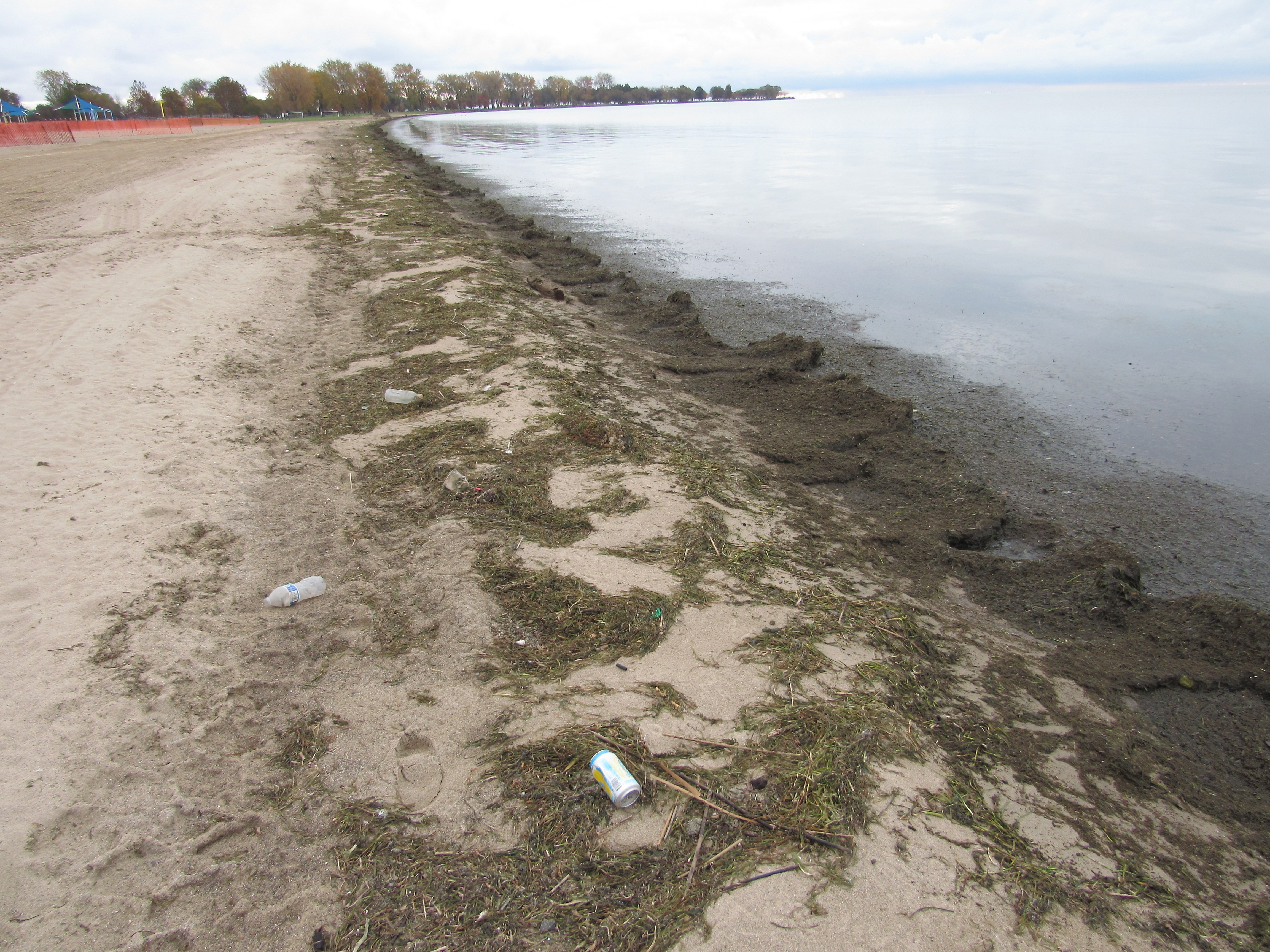
Pollution - Our View
Spending endless summer days on the sands of Metro Beach is a rite of passage for most of us growing up in St. Clair Shores. The family rituals of packing snacks, sandwiches, drinks, bikes, sunblock, and beach equipment varied typically only by whether those tasks were undertaken the night before, or the morning of, the pilgrimage to the Metro.  The anticipation of jumping into the cool water of Lake St. Clair grew exponentially as our cars made their way East on Metro Park Drive. Unfortunately, it was during our youth that we learned to deal with the disappointment of beach closures due to high levels of contamination. We can each remember the first time we heard the terms E.coli, PCBs, and being told that raw sewage was often purposely, and sometimes accidentally, pumped into the waters that we swam in.
The anticipation of jumping into the cool water of Lake St. Clair grew exponentially as our cars made their way East on Metro Park Drive. Unfortunately, it was during our youth that we learned to deal with the disappointment of beach closures due to high levels of contamination. We can each remember the first time we heard the terms E.coli, PCBs, and being told that raw sewage was often purposely, and sometimes accidentally, pumped into the waters that we swam in.
The pollution of Lake St. Clair is a small, yet devastating, example of a very large problem that impacts the Great Lakes at large. Lake St. Clair is part of the Great Lakes, providing 95% of the world’s surface freshwater. Hence, it should be disconcerting to learn that we overdeveloped more than 10,000 miles of shoreline and ravaged our waters with decades of discarding sewage, toxic chemical byproducts, pesticides and fertilizers. One very dangerous type of pollution can be found in the form of tiny “microplastics” in many rivers and tributaries feeding the Great Lakes. A recent article in TIME titled “Disturbing Photographs Show Pollution in the Great Lakes Before the Clean Water Act” contends that if all forms were to stop immediately, it would take 10 years to purify just Lake Erie. Further they suggest that if “The Great Garbage Lakes” continue to be polluted at the current rate, it could a millennium to repair.
We have the powers to help remediate this problem in small ways in the short term and much more drastic ways in the long term. Locally, we have participated in the Annual Nautical Coast activities and have spent time cleaning up plastics and trash along the beaches. In the longer term, using technology go bring a continued focus on problem is also imperative. However, the most impactful change will only result from comprehensive legislative actions that quantitatively drives down the root cause of pollution and generously funds current clean-up efforts. We have the power to run for office or join lobbying efforts to attack this problem head on.
 The anticipation of jumping into the cool water of Lake St. Clair grew exponentially as our cars made their way East on Metro Park Drive. Unfortunately, it was during our youth that we learned to deal with the disappointment of beach closures due to high levels of contamination. We can each remember the first time we heard the terms E.coli, PCBs, and being told that raw sewage was often purposely, and sometimes accidentally, pumped into the waters that we swam in.
The anticipation of jumping into the cool water of Lake St. Clair grew exponentially as our cars made their way East on Metro Park Drive. Unfortunately, it was during our youth that we learned to deal with the disappointment of beach closures due to high levels of contamination. We can each remember the first time we heard the terms E.coli, PCBs, and being told that raw sewage was often purposely, and sometimes accidentally, pumped into the waters that we swam in. The pollution of Lake St. Clair is a small, yet devastating, example of a very large problem that impacts the Great Lakes at large. Lake St. Clair is part of the Great Lakes, providing 95% of the world’s surface freshwater. Hence, it should be disconcerting to learn that we overdeveloped more than 10,000 miles of shoreline and ravaged our waters with decades of discarding sewage, toxic chemical byproducts, pesticides and fertilizers. One very dangerous type of pollution can be found in the form of tiny “microplastics” in many rivers and tributaries feeding the Great Lakes. A recent article in TIME titled “Disturbing Photographs Show Pollution in the Great Lakes Before the Clean Water Act” contends that if all forms were to stop immediately, it would take 10 years to purify just Lake Erie. Further they suggest that if “The Great Garbage Lakes” continue to be polluted at the current rate, it could a millennium to repair.
We have the powers to help remediate this problem in small ways in the short term and much more drastic ways in the long term. Locally, we have participated in the Annual Nautical Coast activities and have spent time cleaning up plastics and trash along the beaches. In the longer term, using technology go bring a continued focus on problem is also imperative. However, the most impactful change will only result from comprehensive legislative actions that quantitatively drives down the root cause of pollution and generously funds current clean-up efforts. We have the power to run for office or join lobbying efforts to attack this problem head on.